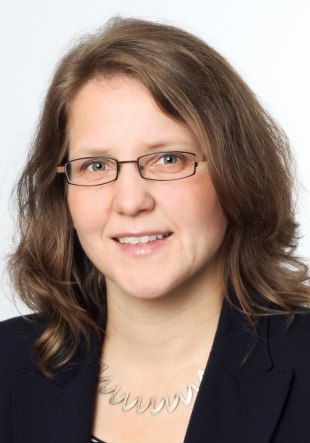PhoG: Sub-Poissonian Photon Gun by Coherent Diffusive Photonics - EU Flagship Project
Overview
Within the Quantum Flagship, one of the largest and most ambitious research initiatives of the European Union, the project „Sub-Poissonian Photon Gun by Coherent Diffusive Photonics“, in short PhoG, is one of only 20 funded proposals in the first phase.
Phog consists of five partners from UK, Germany, Belarus and Switzerland, among them the “Integrated quantum optics group” of Prof. Silberhorn in Paderborn. Under the leadership of Natalia Korolkova from the University of St. Andrew the consortium will develop deterministic and compact sources for non-classical photonic states, the so-called Photon-Guns. To this aim they will engineer the losses and couplings in integrated waveguide arrays. These innovative devices will then be applied in metrology and other quantum technology tasks, e.g. to enhance the frequency stabilization of atomic clocks. The contribution of the partner in Paderborn will focus on the characterization of the non-classical states of light.
The PhoG project receives funding from the European Union's Horizon 2020 research and innovation programme under grant agreement No. 820365.
Research contact: Prof. Dr. Christine Silberhorn
Further information: https://www.st-andrews.ac.uk/~phog/
Project PhoG develops a family of unique devices for generation of quantum states of light, a tailored light with user-selected properties. PhoG devices are based on engineered nonlinear loss in dissipatively-coupled optical waveguide networks, with the "cheap" attenuated coherent states as input. The nonlinear loss acts over much faster timescales than conventional (linear) loss, and so the system is robust to realistic physical limitations. In different regimes, PhoG acts either as a deterministic source of highly sub-Poissonian light, or as a source of entangled photons in different state configurations. Such wide performance range is enabled by a unique physical mechanism behind PhoG and by unique capabilities of the ultrafast laser inscription techniques. The strength of this approach is the ability to inscribe arbitrary patterns of 3-dimensional waveguide structures to create a desired configuration. The devices are compact, on a glass chip. Modern technologies widely use such integrated platforms which renders PhoG highly compatible with current technological systems.
Such quantum sources PhoGs (Photon Guns) will enhance the performance of many protocols across the Quantum Technologies arena by providing a ready alternative to attenuated quantum coherent states which are normally used because of their convenience. Within the project, we implement these devices to enhance super-resolution imaging and to improve stability of the commercial atomic clock. We will create proof-of-principle demonstrations of these applications. For the characterisation purposes, we have developed a unique detector, that can resolve large photon numbers and is based on the established concept of time-multiplexing, which was pioneered by members of the consortium.
The test board and the algorithms have been developed for the application of PhoG in super-resolution microscopy. Laser light passing through a quantum network of PhoG is transformed into special, entangled states of light. This allows to highly enhance the image quality using spatiotemporal quantum correlations. Apart from the purely quantum realm, our coherent devices can have classical applications, be used in quantum-inspired technologies, perform better than standard classical devices. They will enrich integrated quantum photonics with devices in unusual operational regimes and can be generalised to other photonic integrated circuits (PIC) platforms.
Key Facts
- Grant Number:
- 820365
- Project type:
- Sonstiger Zweck
- Project duration:
- 10/2018 - 03/2022
- Funded by:
- Europäische Union (EU)

